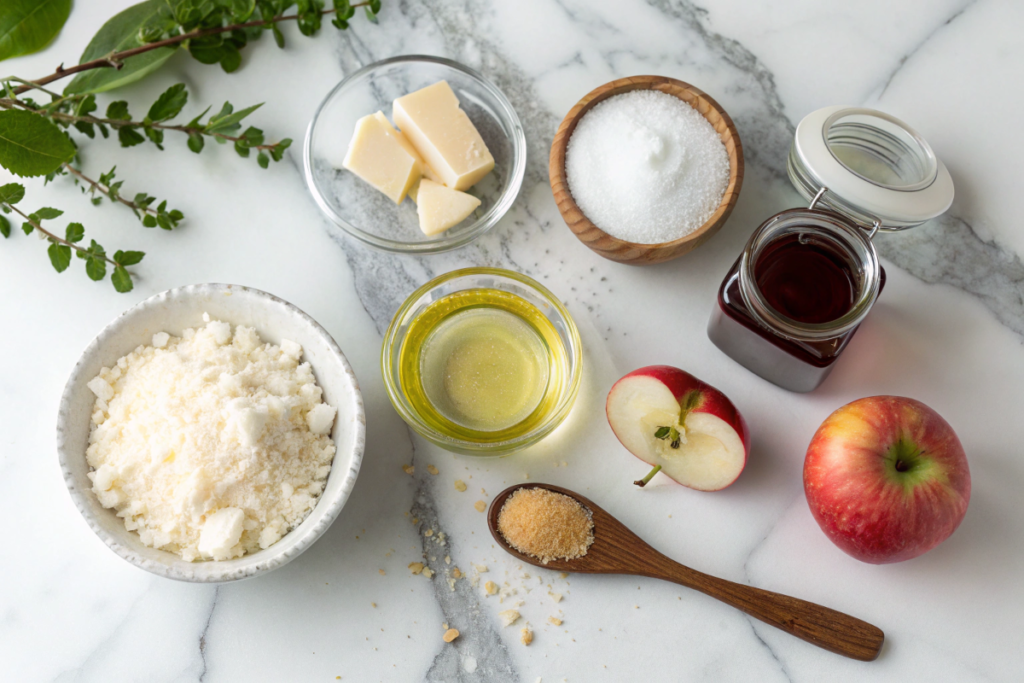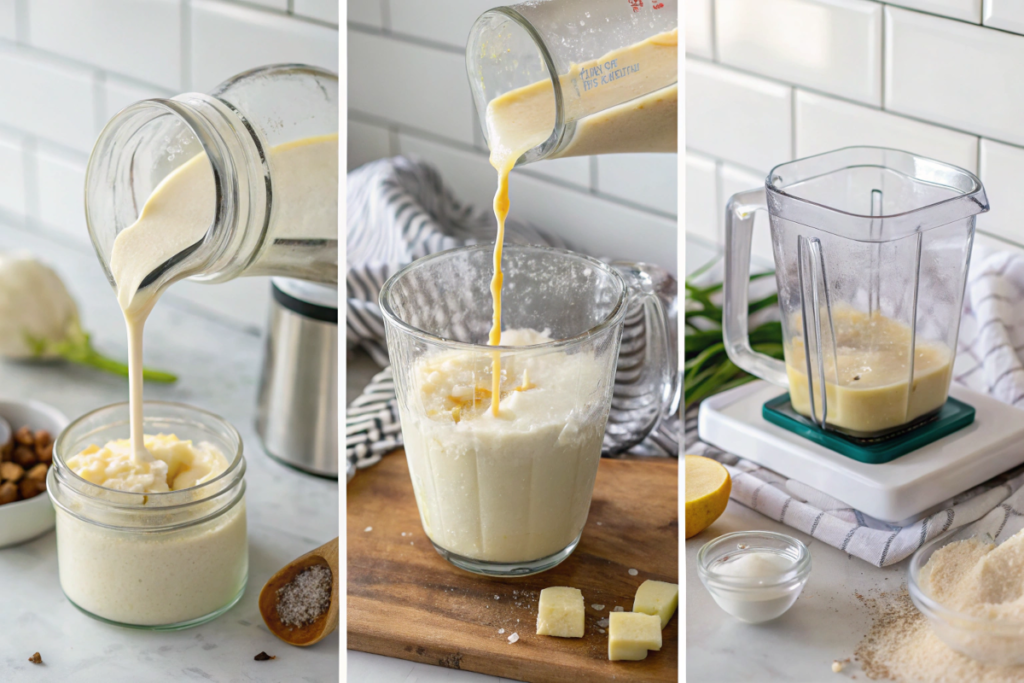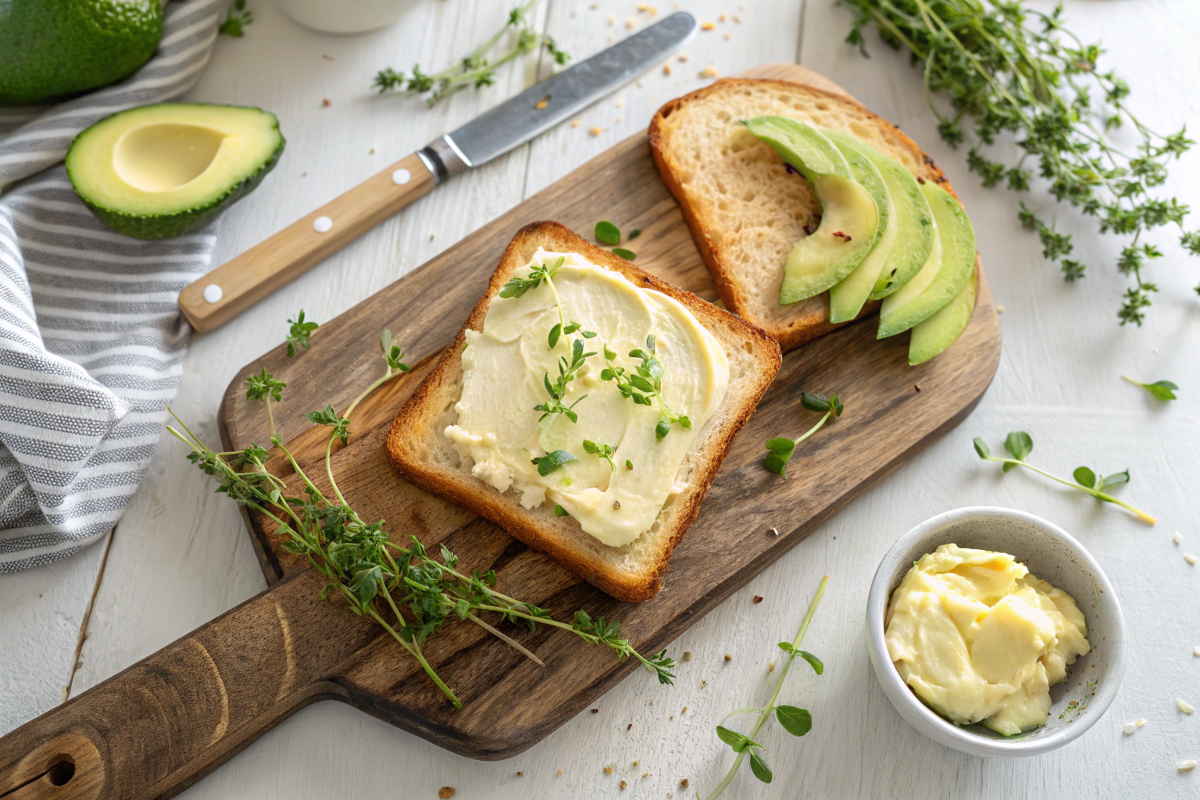Butter plays a crucial role in cooking and baking, adding rich flavor and creamy texture to countless dishes. However, for those following a vegan lifestyle, butter poses a significant dilemma. If you’re also curious about other unexpected foods that might not be vegan, explore this guide. This article delves into why butter is not vegan, explores hidden animal-based ingredients in butter, and provides insights into ethical and plant-based alternatives. By understanding the non-vegan aspects of butter, vegans can make informed choices that align with their dietary and ethical values.
What Does It Mean for a Food to Be Vegan?
Understanding the Principles of Veganism
Veganism is a lifestyle that seeks to exclude all forms of animal exploitation and cruelty, whether for food, clothing, or any other purpose. For a food item to qualify as vegan, it must be free from animal-derived ingredients and produced without harming animals. This definition encompasses not only obvious animal products like meat and dairy but also hidden animal-based additives found in many processed foods.
Understanding these principles is essential for vegans when selecting and consuming foods, ensuring their choices support a compassionate and sustainable lifestyle.
What Is Butter Made Of?
A Breakdown of Butter’s Main Ingredients: Cream and Additives
Butter primarily consists of cream, which comes from cow’s milk. To make butter, cream is churned until the fat separates from the liquid, resulting in a solid mass. While traditional butter contains only milk fat and sometimes salt, many commercial varieties include additional ingredients. These can range from preservatives to flavor enhancers, some of which may not align with vegan standards.
Additionally, certain types of butter, like cultured butter, involve fermentation processes that may use animal-derived cultures.
Why Is Butter Not Vegan?
Explanation of Why Dairy Products Are Not Vegan Due to Their Animal Origins
Butter is inherently non-vegan because it is derived from animal milk, specifically cow’s milk. The production of butter involves extracting cream from milk, which is an animal by-product. Moreover, dairy farming often involves practices that exploit and harm animals, such as the separation of calves from their mothers and the culling of cows once their milk production declines.
These ethical concerns make dairy butter incompatible with vegan principles, which aim to eliminate animal exploitation and cruelty.
Ethical Concerns About Butter Production
Animal Welfare Issues Related to Dairy Farming
The production of dairy butter raises several ethical issues. Dairy cows are often kept in confined spaces, subjected to repetitive cycles of impregnation and milking, and deprived of natural behaviors. The separation of calves from their mothers causes significant distress to both.
Additionally, the life expectancy of dairy cows is shortened compared to their natural lifespan due to the demands of continuous milk production. These practices highlight the ethical conflicts between butter consumption and vegan values centered on animal welfare.
Environmental Impact of Dairy Butter
Overview of the Environmental Footprint of Butter Production
Butter production has a considerable environmental footprint. Dairy farming contributes to greenhouse gas emissions, particularly methane, which is a potent climate change agent. It also requires significant amounts of water and land, leading to deforestation and habitat loss.
Additionally, the production process generates waste, including manure and other by-products, which can contaminate water sources and degrade ecosystems. By choosing vegan butter alternatives, individuals can reduce their environmental impact and support more sustainable agricultural practices.
Hidden Animal-Based Ingredients in Butter
Additional Animal-Derived Ingredients Such as Whey or Buttermilk
Beyond the obvious animal-derived cream, many commercial butters contain hidden animal-based ingredients. For instance:
- Whey: A by-product of cheese production, whey is sometimes added to butter for texture and flavor.
- Buttermilk: Used in cultured butters, buttermilk adds a tangy taste but also ties the product to animal sources.
- Natural Flavors: These can sometimes include animal-derived substances to enhance the taste.
- Preservatives: Certain preservatives used in butter may originate from animal products.
These hidden ingredients complicate the vegan status of butter, making it essential for vegans to scrutinize labels carefully or opt for clearly labeled vegan alternatives.
Vegan Substitutes for Butter
List of Common Plant-Based Alternatives Such as Margarine and Nut Butters
Fortunately, the market offers a variety of vegan substitutes for butter that cater to different culinary needs. Some popular options include:
- Margarine: Made from vegetable oils, margarine is a direct substitute for butter in most recipes.
- Nut Butters: Almond, cashew, and peanut butters can add richness to baked goods and spreads.
- Coconut Oil: With a high fat content, coconut oil provides a similar texture to butter and adds a subtle coconut flavor.
- Olive Oil: Ideal for cooking and baking, olive oil offers a healthy, plant-based fat alternative.
- Avocado: Mashed avocado can replace butter in spreads and certain baked items, adding creaminess and healthy fats.
These alternatives not only align with vegan principles but also offer diverse flavors and textures to enhance your dishes.

How to Choose the Right Vegan Butter Substitute
Criteria for Selecting the Best Vegan Alternative Based on Cooking Needs
Choosing the right vegan butter substitute depends on your specific culinary needs:
- For Baking: Margarine and coconut oil work well, providing the necessary fat content and texture.
- For Spreading: Nut butters and avocado offer creamy spreads with additional nutritional benefits.
- For Cooking: Olive oil is versatile and suitable for sautéing, roasting, and other cooking methods.
- For Flavor: Coconut oil adds a distinct flavor, while nut butters introduce nutty notes to your dishes.
Consider the flavor profile and consistency required for your recipes to select the most appropriate vegan butter alternative.
Homemade Vegan Butter Recipe
A Simple Step-by-Step Recipe for Making Vegan Butter at Home
Creating homemade vegan butter is easy and allows for customization based on your taste preferences. Here’s a straightforward recipe:
Ingredients:
- 1/2 cup coconut oil, melted
- 1/2 cup vegetable oil
- 1/2 cup unsweetened soy milk or almond milk
- 1 tablespoon apple cider vinegar
- 1 teaspoon salt
- 1 tablespoon nutritional yeast (optional, for a cheesy flavor)
Directions:
- Prepare the Ingredients: Ensure that the coconut oil is fully melted. In a mixing bowl, combine the unsweetened soy milk or almond milk with apple cider vinegar. Let it sit for a minute to curdle slightly.
- Blend the Mixture: Using a blender, combine the melted coconut oil, vegetable oil, curdled milk mixture, salt, and nutritional yeast if using. Blend until the mixture is smooth and creamy.
- Refrigerate: Pour the blended mixture into a container and refrigerate for at least an hour to solidify.
- Use as Butter: Once firm, your homemade vegan butter is ready to use. Spread it on toast, bake with it, or use it in any recipe that calls for butter.
This homemade vegan butter offers a fresh, preservative-free alternative to store-bought options, allowing you to control the ingredients and flavors.

Nutritional Differences Between Butter and Vegan Alternatives
Comparison of Calories, Fats, and Nutrients
Vegan butter alternatives often differ nutritionally from dairy butter:
- Calories and Fats: While both contain similar calorie counts, the type of fats varies. Dairy butter is high in saturated fats, whereas many vegan substitutes offer healthier unsaturated fats.
- Cholesterol: Vegan alternatives are cholesterol-free, promoting better heart health.
- Vitamins and Minerals: Some vegan butters are fortified with vitamins like B12 and D, which are essential for vegans.
- Trans Fats: Choose vegan butters with low or no trans fats to support overall health.
Comparing these nutritional aspects helps you choose the best vegan butter substitute for your dietary needs.
Popular Vegan Butter Brands
Overview of Well-Known Vegan Butter Brands Such as Earth Balance and Miyoko’s
Several brands have established themselves as leaders in the vegan butter market:
- Earth Balance: Known for its wide range of flavors and excellent baking performance, Earth Balance offers both stick and spreadable options.
- Miyoko’s Creamery: Renowned for its artisanal, cultured vegan butters made from cashews and other plant-based ingredients.
- Country Crock Plant Butter: Provides a smooth, spreadable option with a similar taste and texture to dairy butter.
- IKEA Vegan Butter: An affordable option that is widely available and performs well in various culinary applications.
- Naturli’ Vegan Butter: Offers a creamy texture and is suitable for both spreading and cooking.
These brands prioritize quality, taste, and ethical production, making them popular choices among vegans and non-vegans alike.
Common Myths About Vegan Butter
Debunking Myths About Taste, Texture, and Usability
Several misconceptions surround vegan butter substitutes:
- Myth 1: Vegan Butters Taste Bad: In reality, many vegan butters offer rich, buttery flavors that rival dairy butter.
- Myth 2: They Don’t Perform Well in Cooking: Vegan butters like margarine and coconut oil perform excellently in cooking and baking.
- Myth 3: They Are Unhealthy: Many vegan alternatives contain healthier fats and are free from cholesterol and trans fats.
- Myth 4: Vegan Butters Are Expensive: With a growing market, affordable options are now widely available.
Understanding these facts helps dispel myths and encourages the adoption of vegan butter alternatives.
FAQs About Vegan Butter and Dairy-Free Alternatives
Can I use vegan butter in all recipes that call for dairy butter?
Yes, vegan butter can be used as a direct substitute in most recipes, including baking, cooking, and spreading.
Does vegan butter spoil faster than dairy butter?
Generally, vegan butter has a similar shelf life to dairy butter when stored properly in the refrigerator.
Can I make vegan butter without coconut oil?
Yes, you can substitute coconut oil with other plant-based oils like olive oil or sunflower oil based on your preference.
Is all margarine vegan?
No, some margarines contain dairy derivatives. Always check the label or choose products specifically labeled as vegan.
Are homemade vegan butters healthier than store-bought versions?
Homemade vegan butters allow you to control the ingredients, often resulting in a healthier option without preservatives or unhealthy fats.
External Considerations: Health and Allergies
Addressing Potential Allergens in Vegan Butters Like Soy and Nuts
When selecting vegan butter alternatives, consider potential allergens:
- Soy: Some vegan butters use soy milk, which may not be suitable for those with soy allergies.
- Nuts: Nut-based butters, like those made from almonds or cashews, can trigger nut allergies.
- Gluten: While most vegan butters are gluten-free, always check labels to ensure there are no hidden gluten sources.
By being aware of these potential allergens, you can choose the safest and most suitable vegan butter alternative for your needs.
Conclusion
Why is butter not vegan? The primary reason lies in its animal origins, specifically the use of dairy from cows. Beyond the obvious, hidden animal-based ingredients and ethical concerns related to dairy farming further complicate its vegan status.
However, with a variety of plant-based alternatives available, vegans can easily find substitutes that align with their values and culinary needs. By reading labels, supporting vegan brands, and seeking out quality alternatives, individuals can enjoy the rich flavors of butter without compromising their ethical standards.
Embrace the world of vegan butter substitutes and enhance your cooking with compassionate, sustainable choices.
Happy cooking!

